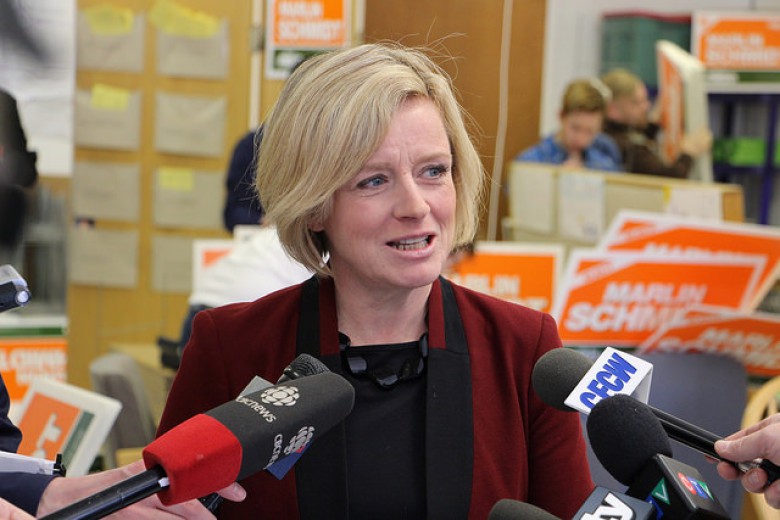It’s not often that the left writes with optimism. Long-time labour activist and NDP politician Peggy Nash’s recent book, Women Winning Office: An Activist’s Guide to Getting Elected, combines detailed electoral strategy with encouragement for progressive activists to run for office. In a time when the far right has an outsized influence in many elections, from local school trustee races to the federal election, it is refreshing to read a book that encourages leftist women to run for office.
Many wealthy white men are raised to believe that they deserve to hold positions of power and see being elected as a nice addition to their resumes. Meanwhile, many women, people of colour, and poor people often feel underqualified to run. Nash writes to convince them that they deserve a seat at the table and that with the right strategy, they can make a difference by holding office.
She draws from her own experience as well as interviews with a number of other women who have run for office, including Leah Gazan, Niki Sharma, and Alejandra Bravo, hoping that readers will see themselves in her and these women and relate to their experiences. They discuss their experiences running electoral campaigns, including fundraising, building a campaign team, door knocking, dealing with online harassment, and decompressing after election results are released.
However, Nash doesn’t question the table she’s encouraging marginalized people to sit at. Nash’s underlying assumption is that the systems of oppression that keep women and other marginalized people from holding positions of power can be transformed by electing them into office. But the system itself is patriarchal, colonial, and white supremacist, and the representation of marginalized groups in office doesn’t make the system more just.
She writes about her own entry into electoral politics, which came after the many disappointments she experienced working in the labour movement. “I saw firsthand the impact of free trade agreements with the loss of hundreds of thousands of manufacturing jobs.[…] Despite ongoing organizing and protests, this neoliberal austerity agenda of weakening public services and undermining the role of government, has enriched the wealthy and either impoverished or undermined progress for the many,” she writes. The answer she gives is that “it matters who gets elected. It matters if working people are represented, and it matters if women are at the table”.
Electoral politics are highly susceptible to what philosopher Olúfẹ́mi Táíwò calls “elite capture” – the process by which elites coopt activists’ demands for justice to reaffirm the status quo. Nash notes that those on the left with aspirations in electoral politics may have to make compromises if they campaign with a political party. However, she does not go into detail about what that may look like or when party discipline turns into elite capture.
It would have been interesting to hear more insider perspectives from progressive politicians on their attempts, successes, and failures in dealing with compromise, party discipline, and the way the electoral system suppresses social movements. For example, the B.C. NDP recently disqualified climate justice activist Anjali Appadurai from the party’s leadership race over claims that she violated campaign rules by co-ordinating with third parties, particularly environmental groups Dogwood and 350.org, to sign up new members. But Appadurai asserts she was disqualified because her platform of bold environmental action and better public services inspired a number of activists and former members to sign up, and she became a significant threat to her opponent David Eby.
The book’s most important message is that holding political office is within reach for everyday people involved in social movements. In an interview, Toronto City Councillor Alejandra Bravo describes an ideal “inside-outside relationship” between social movements and politicians wherein “the objective in a movement is to win material change, policy change, specific concrete change, and you have to have an understanding of the way the inside works.” While this idea is intriguing, there is no guidance for candidates on how to foster this kind of relationship with a social movement, what limits the electoral system imposes on a movement’s demands, or what to do when political parties and elected officials no longer serve the interests of their communities.
Nash uses Hillary Clinton as an example to illustrate the double standard of how men's and women’s experiences are evaluated when they run for office. “A woman can take a lifetime gaining experience and still have people doubt her capacity,” Nash writes. While this is true, Nash uses the misogyny of the electoral system and the feminist demand for gender equality to justify supporting all women politicians, regardless of their politics.
Nash mistakes a change in who is represented in positions of power with an end to the oppression of people from marginalized groups. Hillary Clinton is a powerful American political elite who is part of the ruling class. While Nash presents this example to encourage women to run, she overly focuses on individual identity and overlooks women candidates’ politics. She does not address the fact that Hillary Clinton and many other women politicians have conservative and anti-feminist politics, and instead shows blanket support for all women interested in running for office.
Supporting people solely based on their identities is not the same as a politic that seeks structural change in order to pursue justice for marginalized communities, which is the goal of truly feminist social movements. Despite the limits of Nash’s argument and those of the electoral system, Women Winning Office offers valuable guidance and mentorship for progressive women interested in electoral politics. And for those who are not considering running for office, it helps demystify the work it takes to run an electoral campaign.







